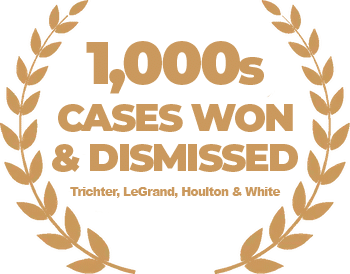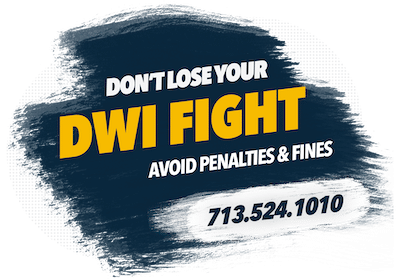TRICHTER & LEGRAND PC ATTORNEYS NAMED TO 2015 ANNUAL SUPER LAWYERS LIST

HOUSTON — Oct. 13, 2015 — Two attorneys with Trichter & LeGrand PC were selected to appear on the 2015 edition of Texas Super Lawyers, a Thomson Reuters service, as leading criminal defense attorneys in Texas.
Of all the attorneys in Texas, only 5 percent are chosen for the annual list.
“It is an honor that more than half of our firm has been named to the annual Super Lawyers list,” said J. Gary Trichter, founder and partner, Trichter & LeGrand.
“This accolade speaks volumes of the types of criminal defense attorneys we have working to protect the rights of our clients.
We take the representation of our clients seriously and consider it the most important part in our American judicial system.”
The Trichter & LeGrand attorneys who were listed this year include:
Gary Trichter was the first DWI Specialist in the State of Texas, having been board-certified DWI/DUI by the National College for DUI Defense.
Besides being listed in the annual Super Lawyers list 12 years straight since 2004, Gary has also been listed seven times in Best Lawyers, the oldest and most-respected peer-review publication in the legal profession.
He is known as the most successful DWI trial and appellate lawyer in the United States, and is rated “AV” by Martindale-Hubbell.
Gary has argued groundbreaking DWI cases and co-authored the DWI textbook “Texas Drunk Driving Law.”
He has also spoken at more than 260 legal seminars in 30 states, where he has taught lawyers, judges and prosecutors about various aspects of the law — particularly DWI.
Leslie LeGrand has been a recognized Rising Star of DWI Defense Attorneys by Super Lawyers since 2011 and is enjoying his first listing as a bona fide Super Lawyer.
He is board-certified in criminal law by the Texas Board of Legal Specialization and has lectured at numerous DWI seminars.
Leslie is a member of the National College for DUI Defense, the Texas Criminal Defense Lawyers Association, Texas DWI Lawyer and the Houston Criminal Lawyers Association.
Before joining Trichter & LeGrand as a Houston DWI lawyer, Leslie was assistant district attorney, felony prosecutor, Harris County.
Super Lawyers, a Thomson Reuters service, evaluates lawyers across the country for its annual list of top attorneys.
Each candidate is measured against 12 indicators of peer recognition and professional achievement.
Nominees from more than 70 practice areas are considered.
The selection process is rigorous and methodical.
TELL US ABOUT YOUR CASE
Form Submissions have a fast response time. Request your free consultation to discuss your case with one of our attorneys over the phone. The use of this form does not establish an attorney-client relationship.
The information on this website is for general information purposes only. Nothing on this site should be taken as legal advice for any individual case or situation. This information is not intended to create, and receipt or viewing does not constitute, an attorney-client relationship.







